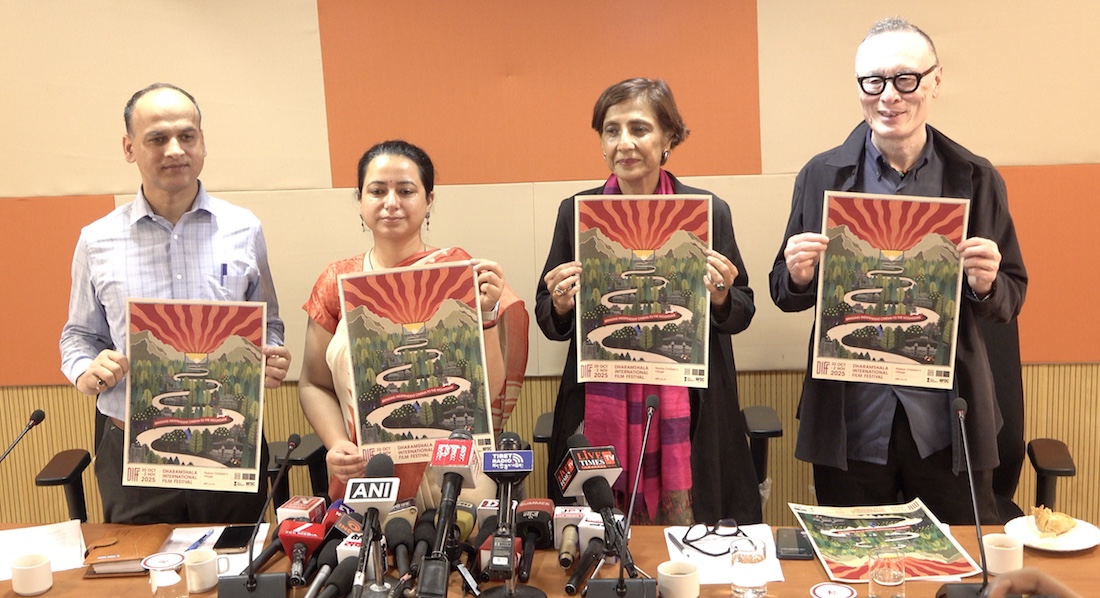Group sending 200,000 Buddhist books to refugees in India
By Ben Barron
BERKELEY – There’s no shortage of “Free Tibet” bumper stickers on East Bay thoroughfares. And one group takes that activism one step further.
A Berkeley organization is preparing to send nearly200,000 books of Buddhist teachings to Tibetan refugees, part of a 12-year tradition.
Two nonprofit organizations, the Yeshe De Project and Dharma Publishing, print the books, wrap the volumes in traditional cloth and ship them to India, where thousands of Tibetan monks pick them up for distribution. The long, rectangular and unbound texts contain the Prajnaparamita — the teachings of Buddha — filled with stylized Tibetan and Sanskrit writing and Buddhist images.
The purpose of their work: to preserve Buddhist teachings eroding under Western influence and the Chinese takeover of Tibet a half-century ago.
“The last generation of Buddhist teachers trained in Tibet are passing away,” said Jack Petranker, senior editor of Dharma Publishing. “We want to get these books into their hands so they can educate the next generation.”
Volunteers fill the large rooms of the warehouse, coloring the edges in traditional crimson dye while others wrap them in red cloth and bind them with red and gold ties. Across the way, a dozen volunteers fill their arms with books and load them into crates.
Piles of crates hide the wall of the far end of the room, and storage rooms are likewise filled with the soon-to-be-delivered boxes. But there is plenty more to be done. Large sections of the warehouse are a red blur, covered by thousands of wrapped books yet to be boxed.
“Most people give money to charities, but this involves effort and time,” said Victoria Camp, her hands speedily wrapping one of the rectangular books. “This is a wonderful way to contribute.”
Although not a Buddhist herself, Camp sees her work as an opportunity to show the Bay Area that there are people devoted to good causes.
“These books will be used for hundreds of years,” she said. “(The Tibetans) won’t know who wrapped them and made them, but there’s still a connection between us.”
This year’s shipment will be sent off to India this coming week. Once there, the annual World Peace Ceremony will be held at Bodh Gaya — Buddhism’s holiest site — where an estimated 7,000 monks and nuns will spend 10 days praying for peace before delivering the books to their respective villages.
The organizations began the annual shipment 12 years ago, sending off 500 books to 700 monks. Since then, they have offered 850,000 books to the Tibetan refugees, in addition to 1 million “sacred images” of Buddhism. This year marks the organization’s largest shipment.
This year, the shipment will include 10,000 prayer wheels, or “wheels of compassion.” The wheels are golden tops with Buddhist prayers wrapped around them, revealing the mantras as they spin.
“They are a magnifier for prayer and devotional chants,” said Bob Russo, a 30-year veteran of Dharma Publishing. “We really want to provide something that will be used in daily devotional practices.”
The organizations and the annual peace ceremony were founded by Tarthang Tulku, a Tibetan lay lama. Tulku escaped to India as a refugee just before the Chinese invasion and soon found his way to Berkeley.
Tulku now oversees the projects and selects the texts that are sent to India each year.
Having been influenced by Tulku’s teachings, many of the nearly 1,000 volunteers are practicing Buddhists looking to give back to the roots of their faith.
“This is our offering, our gesture of support,” Petranker said. “For those of us who are practicing Buddhists, it’s giving back something for everything we’ve gotten in the teachings.”
For the volunteers, as well as Tulku and others overseeing the project, delivering the books represents a blend of Western technology with Eastern wisdom.
“We are using the achievements and skills of this culture and blending them with Eastern teachings,” Petranker said. “We could never do this in Tibet.”









